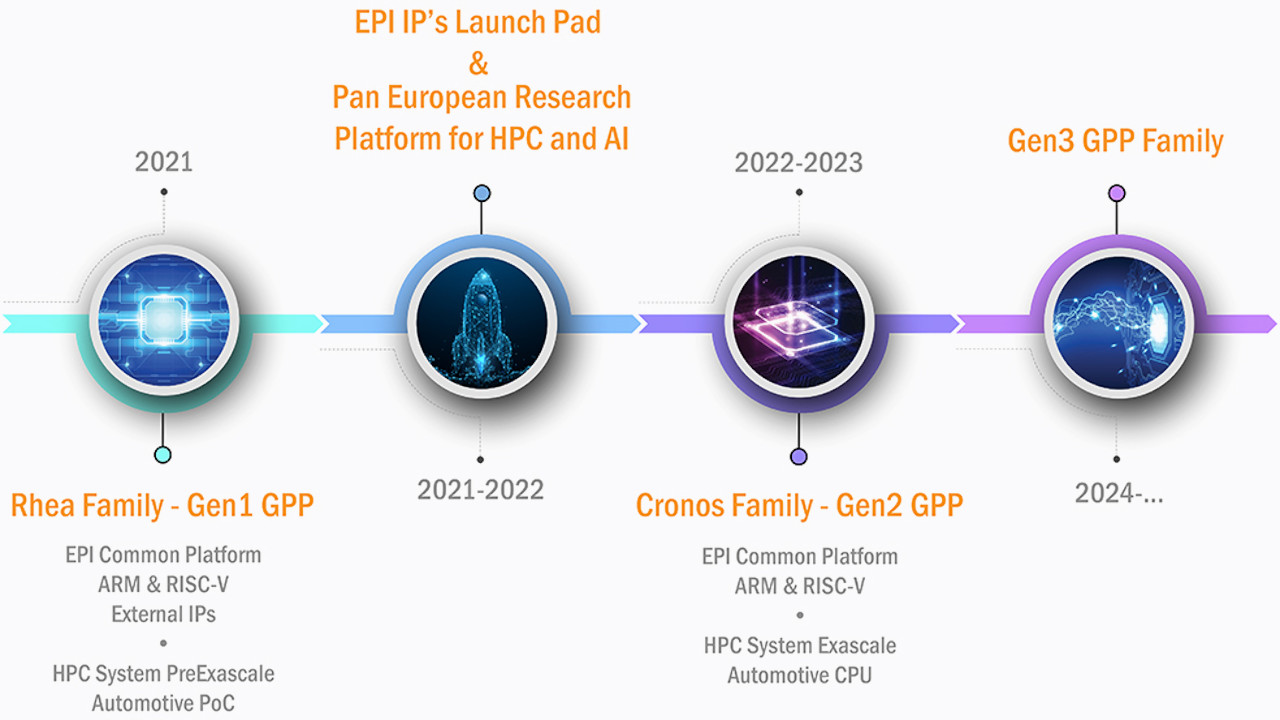The European Processor Initiative (EPI) has announced the delivery of its first architectural designs to the European Commission, marking the first steps in its efforts to create a made-in-Europe processor family for high-performance and automotive computing.
Launched in December 2018, the European Processor Initiative boasts 26 industry partners – up from 23 at foundation – and has three primary goals on its roadmap: the creation of a general-purpose processor (GPP) with a focus on high efficiency; an accelerator, which is being built around the open RISC-V instruction set architecture (ISA); and an automotive platform.
“[The] European Processor Initiative will deliver key technologies to the new European HPC strategic plan for an independent and innovative European high-performance computing and data ecosystem,” claims Jean-Marc Denis, EPI chair. “Energy efficient high-performance families of EPI processors will include most advanced general-purpose and accelerator cores that will deliver unprecedented processing capabilities, enabling EU researchers from academia and industry to most efficiently address global challenges. The business sustainability of the initiative is supported by carefully balanced target markets, with primary focus on exascale HPC/AI and automotive markets.”
“Acceleration is crucial to continued performance gains while reducing power consumption in computing. In EPI, the first accelerator will begin from RISC-V technology,” adds Professor Mateo Valero, director of the Barcelona Supercomputing Centre, “to deliver two unique vector and artificial intelligence accelerators for HPC and AI, since future supercomputers will be mostly heterogeneous; the second accelerator, based on Kalray’s IP, will lead the path to deterministic automotive computation. Both are offering a European solution to future global converged (HPC and AI) computing needs.”
The EPI roadmap sees the first generation platform, codenamed Rhea, launched in 2021 and based on a combination of Arm and RISC-V cores; the second-generation Cronos family follows in 2022/20223; a third-generation family, yet to be codenamed, is scheduled to follow in 2024.
More information is available on the official website.
